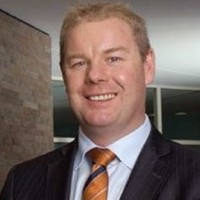 |
|
| cell | cell |
 |
Tony Lamberton FRACS (Orth.) Orthopaedic Surgeon, Grace Orthopaedic Centre, Tauranga, NZ |
Tony Lamberton is a New Zealand trained orthopaedic surgeon, graduating from the University of Auckland School of Medicine in 1993, with the degrees of B.H.B. and M.B.Ch.B.
He completed his specialist training in 2000, and holds the Fellowship qualification in Orthopaedic Surgery (FRACS) from the Royal Australasian College of Surgeons and is a Fellow of the New Zealand Orthopaedic Association.
Before commencing in practice, he completed two years of specialist fellowship training in the UK and USA before returning to New Zealand and an orthopaedic specialist practice in Tauranga (2003).
Tony’s sub-speciality areas are surgery of the hip and knee.
He is actively involved in orthopaedic research, aimed at optimising outcomes from surgery. He is the chairman of Tauranga Orthopaedic Research, a non-profit organisation that studies the outcomes of surgery for all public and private orthopaedic patients in the Bay of Plenty area.
Surgical Registry Big-Data – ‘The Good, the Bad & the Ugly’ Big data pervades our everyday lives in the 21st Century. Surgical practice is no exception, and no more so than in orthopaedic implant outcome registers. National Joint Registers, rightly or wrongly, have become the de facto gold standard in outcomes research, surpassing large institutional and multi-centre trials. For time-poor practicing surgeons, national registers often provide an irresistible “sound bite” solution to a clinical question, that upon deeper scrutiny, actually provide more questions than answers. The evolution of the modern hip replacement will be used to illustrate the rise of surgical Big-Data, from single-surgeon series through to the introduction and development of national joint replacement registers. The pros and cons of implant registers will be explored and discussed, and how they assist in determining the good, the bad, and the ugly outcomes of orthopaedic implants. |
|